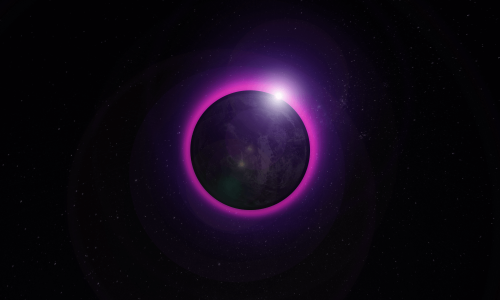| National Factbook |
| Flag: |

|
| Nation Name: |
Xatlantis |
| Leader Name: |
Xmahakal |
| Currency: |

Pound Sterling |
| National Animal: |

Dog |
| History: |
Atlantis (Ancient Greek: Ἀτλαντὶς νῆσος, Atlantis nesos, "island of Atlas") is a island mentioned in an allegory on the hubris of nations in Plato's works Timaeus and Critias, wherein it represents the antagonist naval power that besieges "Ancient Athens", the pseudo-historic embodiment of Plato's ideal state in The Republic.[1] In the story, Athens repels the Atlantean attack unlike any other nation of the known world,[2] supposedly bearing witness to the superiority of Plato's concept of a state.[3][4] The story concludes with Atlantis falling out of favor with the deities
Despite its minor importance in Plato's work, the Atlantis story has had a considerable impact on literature. The allegorical aspect of Atlantis was taken up in utopian works of several Renaissance writers, such as Francis Bacon's New Atlantis and Thomas More's Utopia.[5][6] On the other hand, nineteenth-century amateur scholars misinterpreted Plato's narrative as historical tradition, most famously Ignatius L. Donnelly in his Atlantis: The Antediluvian World. Plato's vague indications of the time of the events (more than 9,000 years before his time[7]) and the alleged location of Atlantis ("beyond the Pillars of Hercules") gave rise to much pseudoscientific speculation.[8] As a consequence, Atlantis has become a byword for any and all supposed advanced prehistoric lost civilizations and continues to inspire contemporary fiction, from comic books to films.
While present-day philologists and classicists agree on the story's fictional character,[9][10] there is still debate on what served as its inspiration. Plato is known to have freely borrowed some of his allegories and metaphors from older traditions, as he did, for instance, with the story of Gyges.[11] This led a number of scholars to investigate possible inspiration of Atlantis from Egyptian records of the Thera eruption,[12][13] the Sea Peoples invasion,[14] or the Trojan War.[15] Others have rejected this chain of tradition as implausible and insist that Plato created an entirely fictional account,[16][17][18] drawing loose inspiration from contemporary events such as the failed Athenian invasion of Sicily in 415–413 BC or the destruction of Helike in 373 BC. |
| Geography |
| Continent: |
Australia |
| Land Area: |
398,334.18 sq. km |
| Terrain: |
Since Donnelly's day, there have been dozens of locations proposed for Atlantis, to the point where the name has become a generic concept, divorced from the specifics of Plato's account. This is reflected in the fact that many proposed sites are not within the Atlantic at all. Few today are scholarly or archaeological hypotheses, while others have been made by psychic (e.g., Edgar Cayce) or other pseudoscientific means. (The Atlantis researchers Jacques Collina-Girard and Georgeos Díaz-Montexano, for instance, each claim the other's hypothesis is pseudoscience.)[76] Many of the proposed sites share some of the characteristics of the Atlantis story (water, catastrophic end, relevant time period), but none has been demonstrated to be a true historical Atlantis
Most of the historically proposed locations are in or near the Mediterranean Sea: islands such as Sardinia,[77][78][79] Crete, Santorini (Thera), Sicily, Cyprus, and Malta; land-based cities or states such as Troy,[80][page needed] Tartessos, and Tantalis (in the province of Manisa, Turkey);[81] Israel-Sinai or Canaan;[citation needed] and northwestern Africa.[82]
The Thera eruption, dated to the seventeenth or sixteenth century BC, caused a large tsunami that some experts hypothesize devastated the Minoan civilization on the nearby island of Crete, further leading some to believe that this may have been the catastrophe that inspired the story.[83][84] In the area of the Black Sea the following locations have been proposed: Bosporus and Ancomah (a legendary place near Trabzon).
Others have noted that, before the sixth century BC, the mountains on either side of the Gulf of Laconia were called the "Pillars of Hercules",[37][38] and they could be the geographical location being described in ancient reports upon which Plato was basing his story. The mountains stood at either side of the southernmost gulf in Greece, the largest in the Peloponnese, and that gulf opens onto the Mediterranean Sea. If from the beginning of discussions, misinterpretation of Gibraltar as the location rather than being at the Gulf of Laconia, would lend itself to many erroneous concepts regarding the location of Atlantis. Plato may have not been aware of the difference. The Laconian pillars open to the south toward Crete and beyond which is Egypt. The Thera eruption and the Late Bronze Age collapse affected that area and might have been the devastation to which the sources used by Plato referred. Significant events such as these would have been likely material for tales passed from one generation to another for almost a thousand years. |
| Highest Peak: |
5000,
3,000 meters
|
| Lowest Valley: |
500,
786 meters
|
| Climate: |
|
| People & Society |
| Population: |
17,721,045 people |
| Demonym: |
|
| Demonym Plural: |
Indian |
| Ethnic Groups: |
I guess I don't know - 99.9%
0.1 - 0.1%
European - 12.0% |
| Languages: |
English - 79.0%
Hindi - 21.0% |
| Religions: |
Non - 0.0% |
| Health |
| Life Expectancy: |
260 years |
| Obesity: |
0% |
| Alcohol Users: |
40% |
| Tobacco Users: |
19% |
| Cannabis Users: |
25% |
| Hard Drug Users: |
1% |
| Economy |
| Description: |
This nation follow mix economic development
In order to give his account of Atlantis verisimilitude, Plato mentions that the story was heard by Solon in Egypt, and transmitted orally over several generations through the family of Dropides, until it reached Critias, a dialogue speaker in Timaeus and Critias.[114] Solon had supposedly tried to adapt the Atlantis oral tradition into a poem (that if published, was to be greater than the works of Hesiod and Homer). While it was never completed, Solon passed on the story to Dropides. Modern classicists deny the existence of Solon's Atlantis poem and the story as an oral tradition.[115] Instead, Plato is thought to be the sole inventor or fabricator. Hellanicus of Lesbos used the word "Atlantis" as the title for a poem published before Plato,[116] a fragment of which may be Oxyrhynchus Papyrus 11, 1359.[117] This work only describes the Atlantides (the daughters of Atlas), however, and has no relation to Plato's Atlantis account.
In the new era, the third century AD Neoplatonist Zoticus wrote an epic poem based on Plato's account of Atlantis.[118] Plato's work may already have inspired parodic imitation, however. Writing only a few decades after the Timaeus and Critias, the historian Theopompus of Chios wrote of a land beyond the ocean known as Meropis. This description was included in Book 8 of his Philippica, which contains a dialogue between Silenus and King Midas. Silenus describes the Meropids, a race of men who grow to twice normal size, and inhabit two cities on the island of Meropis: Eusebes (Εὐσεβής, "Pious-town") and Machimos (Μάχιμος, "Fighting-town"). He also reports that an army of ten million soldiers crossed the ocean to conquer Hyperborea, but abandoned this proposal when they realized that the Hyperboreans were the luckiest people on earth. Heinz-Günther Nesselrath has argued that these and other details of Silenus' story are meant as imitation and exaggeration of the Atlantis story, by parody, for the purpose of exposing Plato's ideas to ridicule.[119] |
| Average Yearly Income: |
$249.98 |
| Gross Domestic Product (GDP): |
$28,466,639,328.00 |
| GDP per Capita: |
$1,606.37 |
| Gross National Income (GNI): |
$22,658,731,340.00 |
| Industries: |
|
| Military |
| History: |
|
| Soldiers: |
0 |
| Tanks: |
34,250 |
| Aircraft: |
3,450 |
| Ships: |
0 |
| Missiles: |
0 |
| Nuclear Weapons: |
0 |
| Last Updated: 06/20/2022 07:55 pm |
















